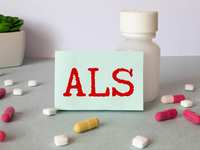How much alcohol is safe?

Years of conflicting recommendations about alcohol consumption have left many of us confused. Does a daily glass of wine have health benefits? Or, as public health experts warned more recently, is there no amount of alcohol that is entirely without risk? While research into the effects of alcohol continues to evolve, one thing is certain: alcohol is implicated in a number of chronic health conditions, particularly when consumed in larger amounts and over long periods of time.
“A lot of people are drinking excessively who don’t realize the dangers — they don’t even realize it’s excessive,” says Ucheoma Longe, MD, a family practitioner with Memorial Hermann.
In its national dietary guidelines, the United States Department of Agriculture recommends no more than two drinks a day for men and one drink a day for women. Even within those limits, however, there’s evidence that alcohol use can lead to increased health risks, especially for certain types of cancer and cardiovascular disease, according to Marissa Esser, who leads the alcohol program at the Centers for Disease Control and Prevention.
And drinking more than those amounts can cause serious physical and mental health problems. More than 140,000 people die from alcohol-related causes annually, according to the National Institute on Alcohol Abuse and Alcoholism (NIAAA), making alcohol the fourth-leading preventable cause of death in the United States behind tobacco, poor diet and physical inactivity, and illegal drugs. People who misuse alcohol have a greater risk of liver disease, heart disease, depression, stroke and stomach bleeding, as well as higher rates of certain cancers, including breast cancer, liver cancer and colon cancer.
“Alcohol is metabolized by the liver, so it can lead to diseases such as fatty liver and cirrhosis. It can also be hard on the heart,” Dr. Longe says. “Your mental health can be affected, and if you’re misusing alcohol regularly, your family’s mental health can be affected.”
But the risks aren’t always obvious, especially because American culture tends to treat alcohol as an innocuous way to relax and unwind, Dr. Longe says. People in their 20s and people over 60 are especially vulnerable.
“Many of the people I see who drink heavily are younger people, especially men, who work very hard during the week and binge drink on the weekend,” she says. “I also see older people who are retired, who get into a habit of drinking more than they should. A lot of that is cultural, and some of it is driven by a lack of more meaningful outlets for relaxation. It can be tempting to look for the reward of binge drinking — it’s a shortcut to having a good time.”
That doesn’t necessarily mean that everyone who is a binge drinker has alcohol use disorder, she adds. “Someone who is drinking excessively on weekends may not be addicted to alcohol, but they’re still increasing their risk of cardiovascular disease, liver disease and other problems. They can still go to work and it doesn’t affect their performance, but it’s still affecting their health. You don’t have to be an alcoholic for it to be detrimental to you,” she says.
Binge drinking can also carry immediate hazards apart from the risk of developing chronic health conditions. “Because your judgment is impaired when you drink excessively, you can make harmful decisions and engage in risky behavior, from spending more money than you should to driving drunk and potentially hurting someone else,” Dr. Longe says.
In 2021, alcohol-impaired driving fatalities accounted for 13,384 deaths, or 31% of overall driving fatalities. And alcohol contributes to approximately 18.5% of emergency department visits overall, according to the NIAAA.
It’s worth having a conversation with your primary care provider about how much alcohol you consume, Dr. Longe says. And it’s equally important for providers to give guidance without judging a patient’s lifestyle.
“When you ask a patient how much they drink, or smoke, or whether they use drugs, sometimes you can sense that they’re holding back,” she says. “When people know they’re not going to get in trouble for telling the truth, then often they’ll open up. I try to give the facts respectfully, without judgement. I do ask if drinking impacts their relationships, or if they’ve made decisions they regretted while they were drinking. That can help them put the pieces together that maybe they haven’t thought of before. Sometimes we assume people are aware of the effects of alcohol, but many people aren’t. It’s about what it does to your body but also what it does to your life. That can open up a new perspective.”
If someone wants to cut back on alcohol but isn’t sure they can, primary care providers can connect them with counseling and other resources. Memorial Hermann’s addiction medicine specialists can also help with drug and alcohol addiction through 12-step education programs, counseling, relapse prevention and treatment of withdrawal symptoms.
For more information, visit memorialhermann.org/doctors/addiction-medicine-specialists.


















